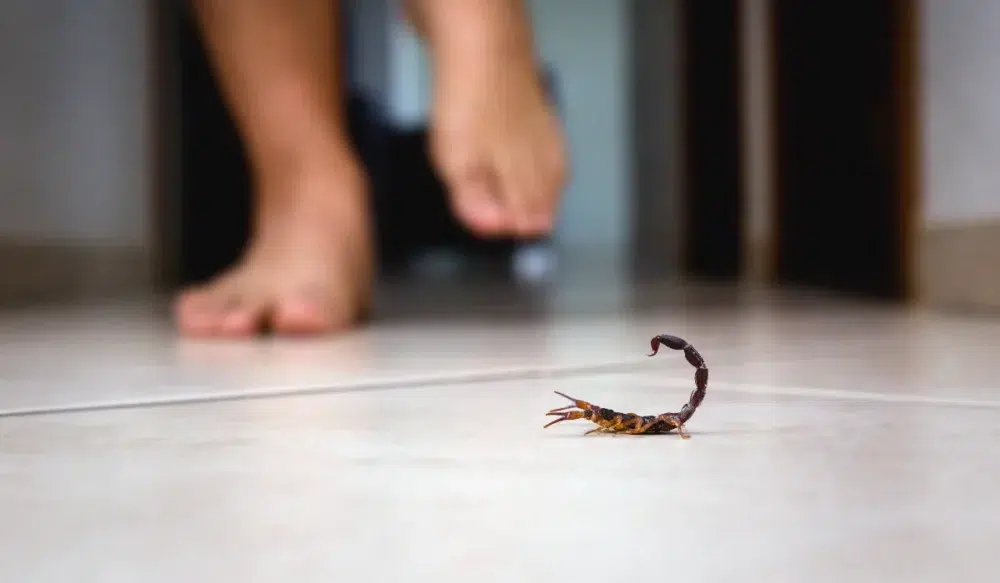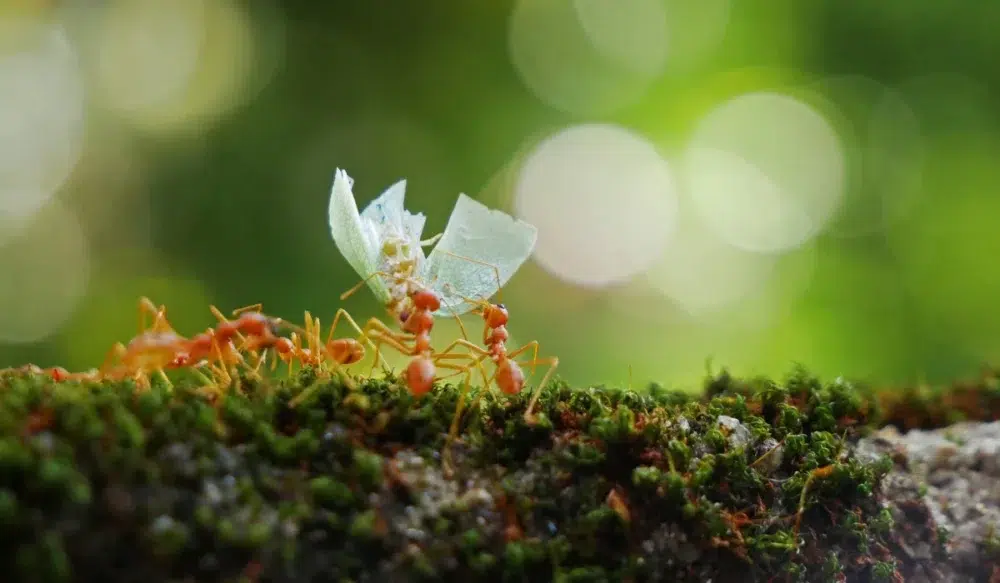Bees are beneficial insects. Even Africanized honey bees are a benefit. Bees are vital for the pollination of plants. Experts estimate that grocery stores would have half the fruits and vegetables if bees were to go extinct. Honey bees are so important in their role as pollinators that the EPA has taken steps to protect this bee species by monitoring and setting up guidelines for the labeling and development of pesticides. So, what do you do when honey bees come into your Chandler yard or try to get into your home? Do you have to just leave them alone and let them sting your family? Of course not. The EPA puts the risk to humans above the need to protect honey bees. You don’t have to live with honey bees. But, before you decide to go at those bees with a can of spray, we have a few facts for you to consider.
It Is Okay To Let Bees Visit
You probably already know this, but it is worth mentioning. It is good to allow bees to come into your yard. They present little or no threat to you when they are away from their nests, and they’re going to pollinate the plants in your landscaping.
All Bees Are Not Equal
When bees come into your yard, the greatest concern is that they could sting you. This risk increases if bees develop a nest in your yard—or in the walls of your home. The nest protection of social bees is quite strong, especially in Africanized honey bees. In fact, the venom of Africanized honey bees is no worse than the venom of regular honey bees, which are Apis mellifera ligustica (European honey bees). The problem with Africanized honey bees is that they respond quickly to vibrations and disturbances. If you mow near the hive of these bees, you’ll know it. They will mobilize quickly. While honey bees and Africanized honey bees lose their barbed stinger and die after stinging you, they don’t care. They’re willing to die for their queen. This can lead to several wounds if you have a run-in with either of these two bee species. But all it takes is one bee sting for a life-threatening allergic reaction to occur. And keep in mind that an allergy can develop as you grow older. If you’re stung, and you experience a shortness of breath, seek medical assistance immediately.
There are two other types of bees that can come into your yard: Bumblebees and carpenter bees. These two bees are big, fat, and hairy. Carpenter bees have a black abdomen that is shiny, and visibly hairless. Bumblebees have hairy abdomens. When carpenter bees come into your yard, they can bore holes into the wood of your home. Over time, and with repeated infestation, this can damage your property. Bumblebees are mostly docile insects, but they can present a threat when they establish a nest in your yard and if they are social bumblebees. A social insect will swarm when protecting the nest.
What To Do About Bees In Chandler
Now that you have a greater understanding of the problem, you’ll have a better understanding of why it’s important to call an experienced bee-control professional when you see (or hear) bee activity.
Bees can present a serious threat to you and your family.
Bees can present a threat to anyone who enters your yard.
Bees can hide in voids and other locations that are difficult to treat.
Carpenter bees present a threat to your property.
At Green Home Pest Control, we employ bee-removal specialists who have the training and expertise to handle even the most challenging infestations. If bees get into your shed or exterior storage room, no problem. If bees get into your roofline, no problem. If bees get into your wall voids, no problem. Our specialists have protective gear, EPA approved products, and equipment to handle any situation. We’ll make sure those bees are properly removed, in accordance with all government regulations. Reach out to us today and tell us about your bee problem. We’re standing by to assist you with all your pest control needs.


